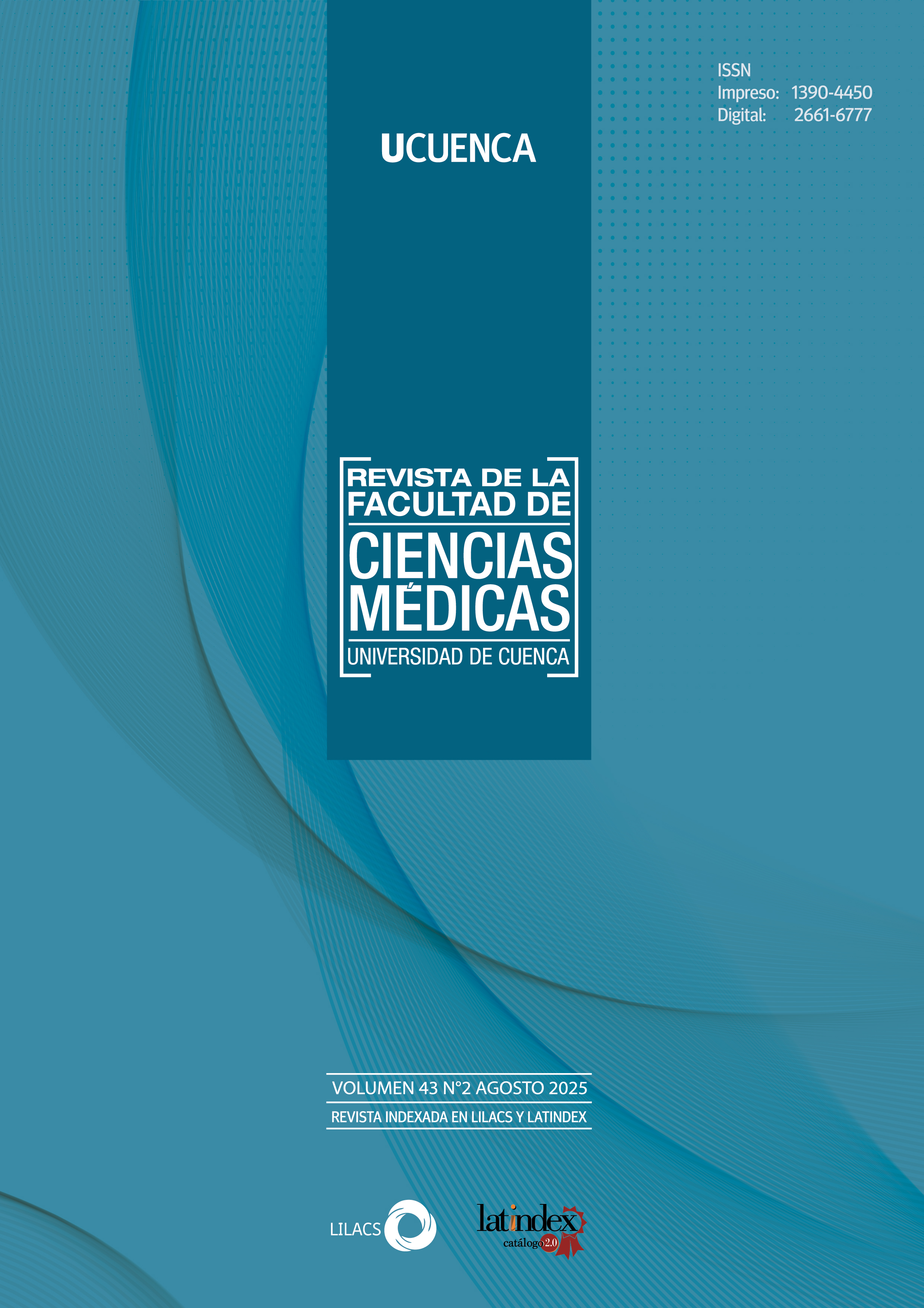Prevalence of cognitive impairment and associated factors in older adult residents of Hogar Cristo Rey
DOI:
https://doi.org/10.18537/RFCM.43.02.05Keywords:
cognitive dysfunction, aged, quality of lifeAbstract
Introduction: cognitive impairment is one of the most prevalent conditions in older adults who are residing in care centers, impacting negatively in their quality of life and interfering with the performance of daily activities.
Objective: to determine the prevalence of cognitive impairment, and associated factors, in older adults at Hogar Cristo Rey.
Methodology: an analytical observational study was carried out with a sample of 87 older adults. A data collection form and Mini-Mental State Test (MMSE) were used. Data were analyzed using SPSS 25, Epi Info 7.2.6.0, and Microsoft Excel 2019. Data were also interpreted using percentages, frequencies, chi-square tests, and prevalence odds ratios (PORs) with 95% CI.
Results: the prevalence of cognitive impairment was 66.67%. A statistically significant association (p<0.05) was found between cognitive impairment and polypharmacy and physical activity; risk factors: female sex (RMP 4.061; 95% CI 1.580–10.440), and polypharmacy (RMP 2.676; 95% CI 1.293–8.425); protective factor: physical activity in severe impairment (RMP 0.164; 95% CI 0.031–0.867).
Conclusions: cognitive impairment is highly prevalent (66.67%) among older adults at Hogar Cristo Rey. Female sex and polypharmacy were identified as risk factors, while physical activity was found as a protective factor against severe impairment.
Downloads
Published
Issue
Section
License
Copyright (c) 2025 Md. Esteban Aguirre, Md. Trosky Aguilar, Dr. Patricio Córdova

This work is licensed under a Creative Commons Attribution-NonCommercial-ShareAlike 4.0 International License.
Copyright © Autors.

You are free to:
 |
Share — copy and redistribute the material in any medium or format |
 |
Adapt — remix, transform, and build upon the material for any purpose, even commercially. |
Under the following conditions:
 |
Attribution — You must give appropriate credit, provide a link to the licence, and indicate if changes were made. You may do so in any reasonable manner, but not in any way that suggests the licenser endorses you or your use. |
| NonCommercial — You may not use the material for commercial purposes. | |
| ShareAlike — If you remix, transform, or build upon the material, you must distribute your contributions under the same license as the original. |
| No additional restrictions — You may not apply legal terms or technological measures that legally restrict others from doing anything the licence permits. |






